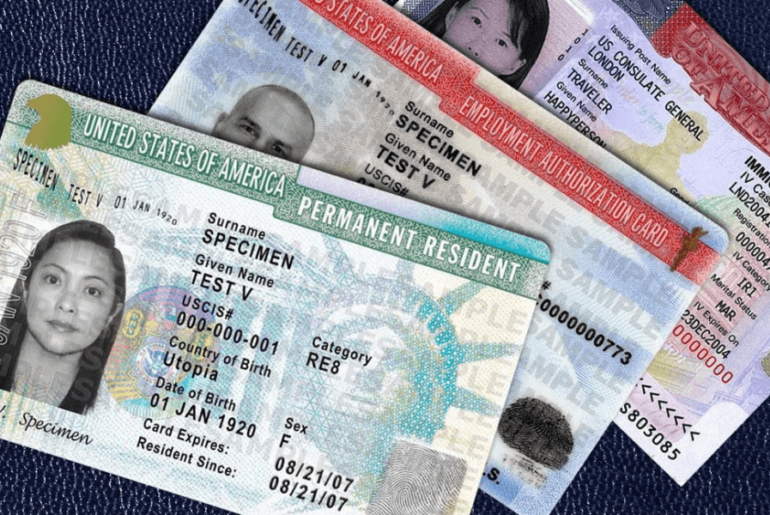To ensure your safety as an immigrant living in the US, it is crucial to understand your rights and always carry the necessary documents with you. Immigration policies are constantly changing, making this knowledge even more important. Whether you are a citizen, permanent resident, DACA recipient, or undocumented, knowing your rights and the documents to carry can help protect you and your loved ones.
Next, we will answer the following questions:
- What are the basic rights of immigrants in the US?
- What should I do if law enforcement or an immigration officer asks me about my immigration status?
- Which documents are necessary for US citizens to carry?
- Which documents should someone who is undocumented carry?
- What documents should permanent residents have with them?
- What documents do individuals with asylum, TPS, and DACA status need to carry?
What are the basic rights of immigrants in the US?
Regardless of your immigration status, all individuals living in the US have basic rights guaranteed by the US Constitution. These rights include:
- Freedom of religion, allowing you to practice your faith and cultural traditions
- Freedom of speech, giving you the right to express your opinions and beliefs without fear of retaliation
- The right to due process, which means you have the right to a fair and impartial hearing before any government action is taken against you
- The right to work and receive fair pay for your labor
- The right to access education and healthcare
- The right to be free from unreasonable searches and seizures by law enforcement.
To learn more about your constitutional rights, click here.
What should I do if law enforcement or an immigration officer asks me about my immigration status?
According to the American Civil Liberties Union (ACLU), here is what you should do if asked about your immigration status.
- You have the right to remain silent. You do not have to answer questions about where you were born, whether you’re a US citizen, or how you entered the country.
- If you’re over 18, carry your immigration documents with you at all times. If you don’t have immigration papers, say you want to remain silent. If you do have your immigration papers with you, you must show them.
It is also highly recommended that you do not lie about your citizenship status, provide fake documents or sign any documents without a lawyer present. If you do not have a lawyer, memorize the telephone number of an organization that helps immigrants. You can find a list of affordable legal assistance organizations here.
Which documents are necessary for US citizens to carry?
The term US citizen refers to any individual who is a citizen of the United States by law, birth, or naturalization. As a US citizen, you should always carry any of the following documents:
- Driver’s license
- State identification card
- US passport or passport card
- Any identification from a federal and/or military agency.
Which documents should someone who is undocumented carry?
Any undocumented immigrant who does not have legal authorization to stay in the US can present any of the following documents to show the authorities who they are. It is important to understand that the following documents only establish identity and cannot replace immigration papers:
- Driver’s license
- Foreign passport
- Consular identification card.
Please note, as of March 2023, 19 states plus the District of Columbia allow undocumented immigrants to obtain a driver’s license. For more information, click here. If you need information on scheduling an appointment with your country’s consulate to renew your passport or consular identification card, click here.
What documents should permanent residents have with them?
Lawful permanent residents, also known as “green card” holders, are non-citizens who are lawfully authorized to live permanently within the United States. According to USCIS, permanent residents age 18 or older must always have a valid Green Card in their possession. However, if you do not have your green card with you, you can also present a valid driver’s license, state identification card, or passport.
What documents do individuals with asylum, TPS, and DACA status need to carry?
- If you have been granted asylum or refugee status, it means that you have suffered persecution due to factors such as race, religion, nationality, politics, or social group, and you have permission to stay in the US.
- Temporary Protected Status is a temporary humanitarian permit granted to citizens of specific countries, including El Salvador, Guinea, Haiti, Honduras, Liberia, Nepal, Nicaragua, Sierra Leone, Syria, Somalia, Sudan, South Sudan, and Yemen.
- Deferred Action for Childhood Arrivals (DACA) is a program that prevents the temporary deportation of immigrants who entered the US as children. These immigrants are also known as Dreamers.
If you fall under any of these three categories, you must always carry certain documents with you to provide proof of protected status. These documents include an employment authorization card, driver’s license, state identification card, or valid foreign passport.

